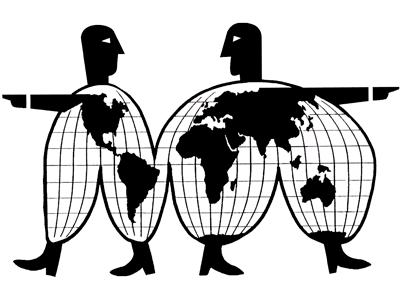Surge of the 'Second World'
Mini Teaser: Those nations falling between the developed West and the world’s poorest countries are jockeying for position in their own regions and playing powers against each other. They will make life increasingly difficult for the reigning great powers.
Second, the United States can no longer ignore the Second World region with arguably the greatest potential: Latin America. The nearly nine hundred million citizens south of America’s borders together match the economic size of China. This huge entity has been habitually taken for granted by Washington. But South America’s vast natural resources, the rise of Brazil as a pragmatic regional leader and the emergence of a “new-Left consensus” of welfare-oriented policies combine to make a postideological, interregional alliance for energy security and industrial competitiveness a more realistic prospect than ever before. South America should be viewed as nothing less than the third pillar of the West.
America is not alone in grappling with the potential and turbulence of the Second World as it seeks to craft grand strategy and implement foreign policy. As China’s commercial and infrastructural expansionism pulls it ever more uncomfortably into central Asia, the Near East and Southeast Asia, Beijing may find it increasingly difficult to import resources without importing instability. Similarly, the EU is already witnessing the social tensions that result from mass migration from Muslim lands. Though America’s rivals seem more fragile than it is, it remains to be seen whether being on the other side of the world will turn out to be a blessing or a curse.
Second World states are clearly rising up the priority list in the formulation of American foreign policy. Charles Kupchan of Georgetown University argues that leveraging emerging regional powers is one of four pillars of a sensible grand strategy. While most Second World states will not individually become drivers of the great shift in global order currently under way, collectively they have contributed to the demise of the Old Order and been key players in ensuring that no new hierarchical arrangement can easily emerge to replace the Western-led, post–World War II system. Any plan for a future world order is not worth writing if it does not include the dozens of Second World countries whose aspirations are bubbling up into the framework of the world with increasing force.
Parag Khanna is a senior research fellow at the New America Foundation and director of the Hybrid Reality Institute. His most recent book is How to Run the World: Charting a Course to the Next Renaissance (Random House, 2011).
Part of TNI's special issue on the Crisis of the Old Order.
Image: Veer
 Pullquote: In the environment of uncertainty that prevails in today’s transition toward multipolarity, small perturbations among nations can quickly ripple into much larger confrontations.Essay Types: Essay
Pullquote: In the environment of uncertainty that prevails in today’s transition toward multipolarity, small perturbations among nations can quickly ripple into much larger confrontations.Essay Types: Essay 